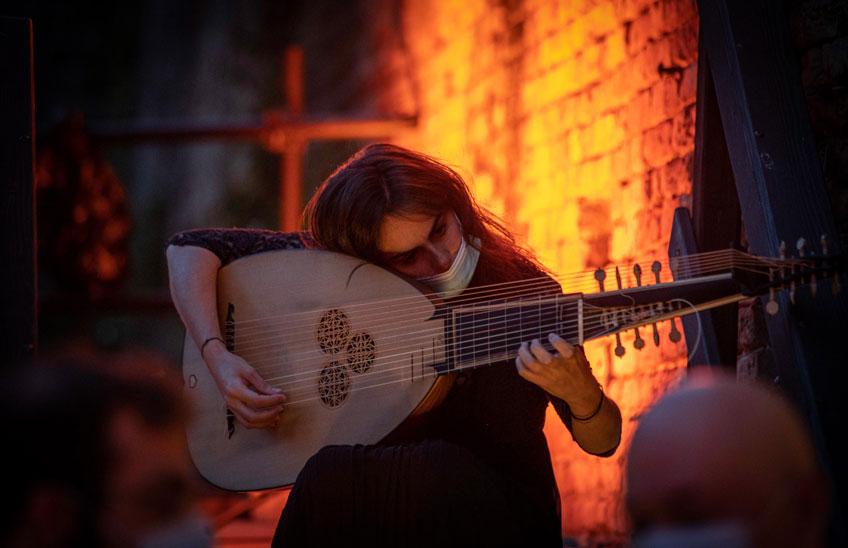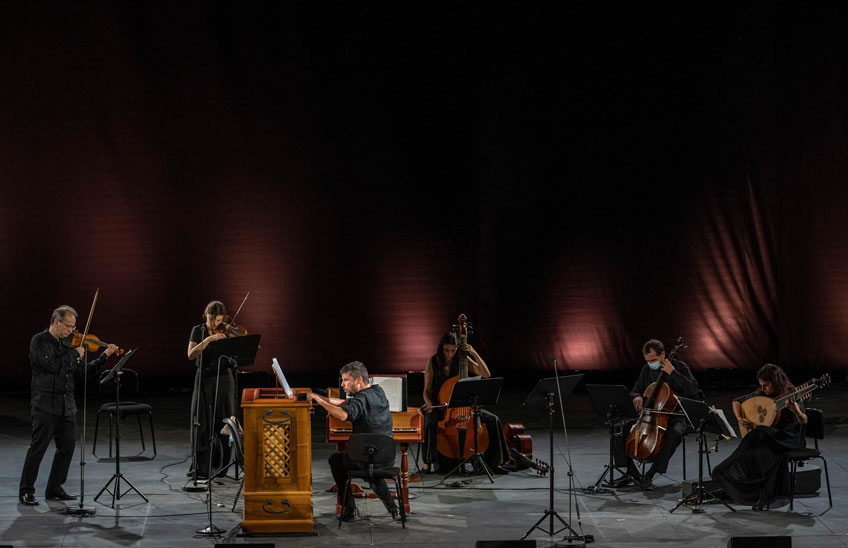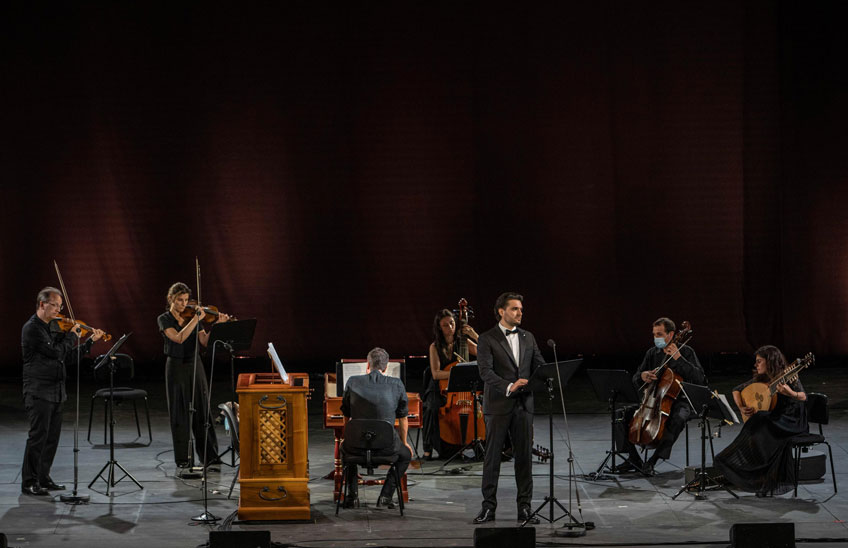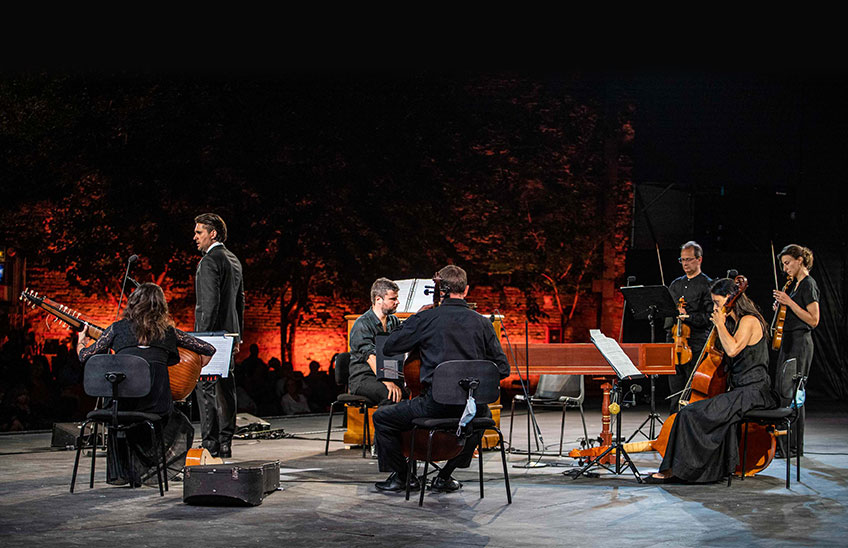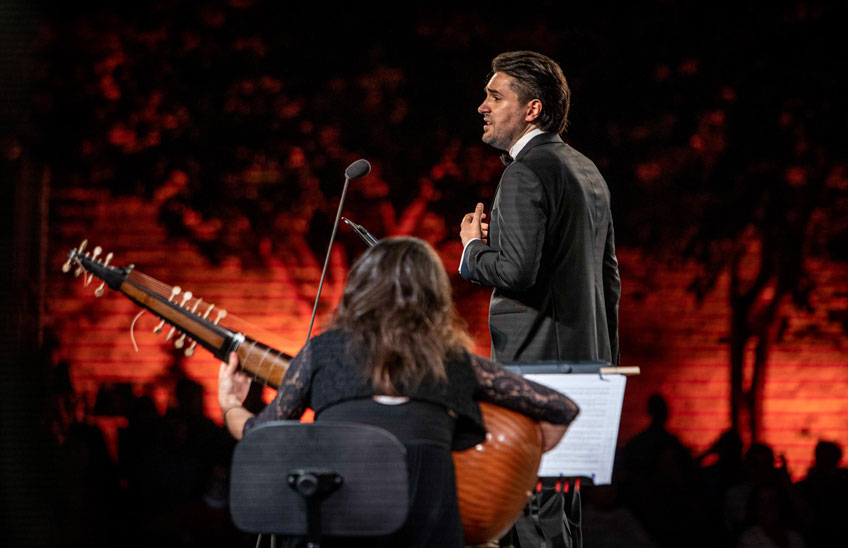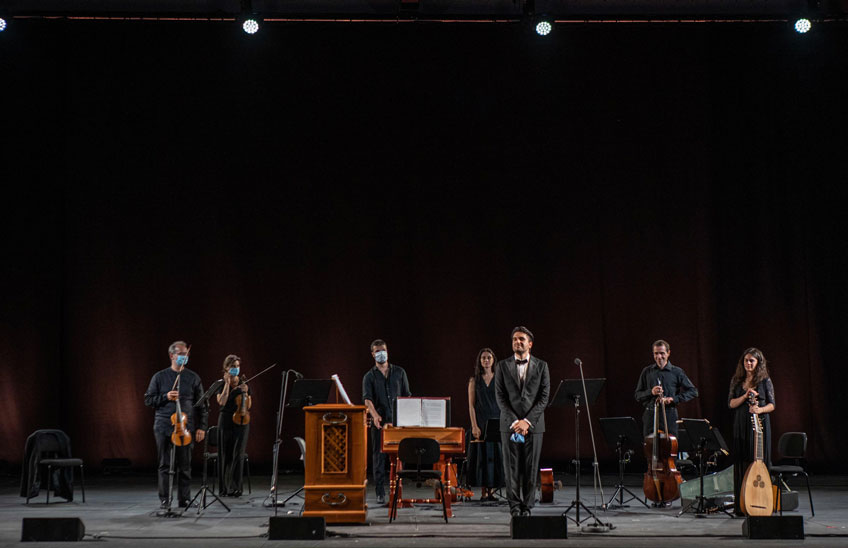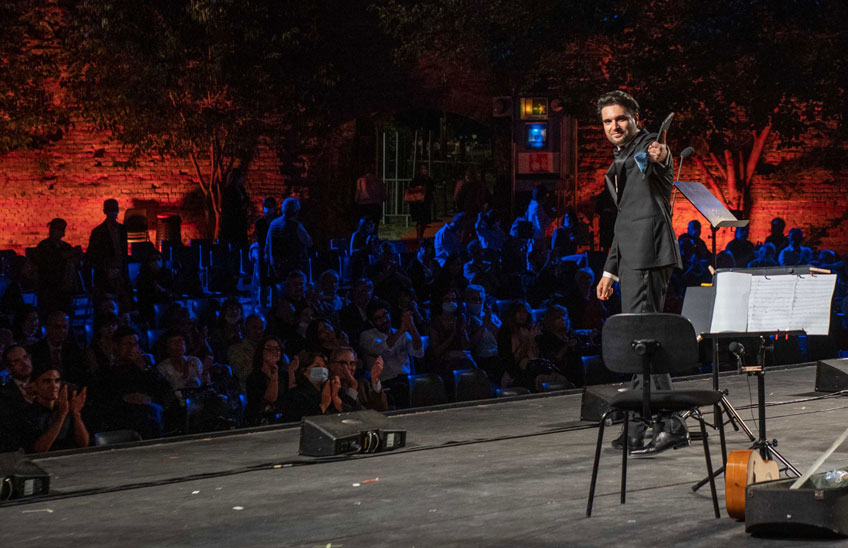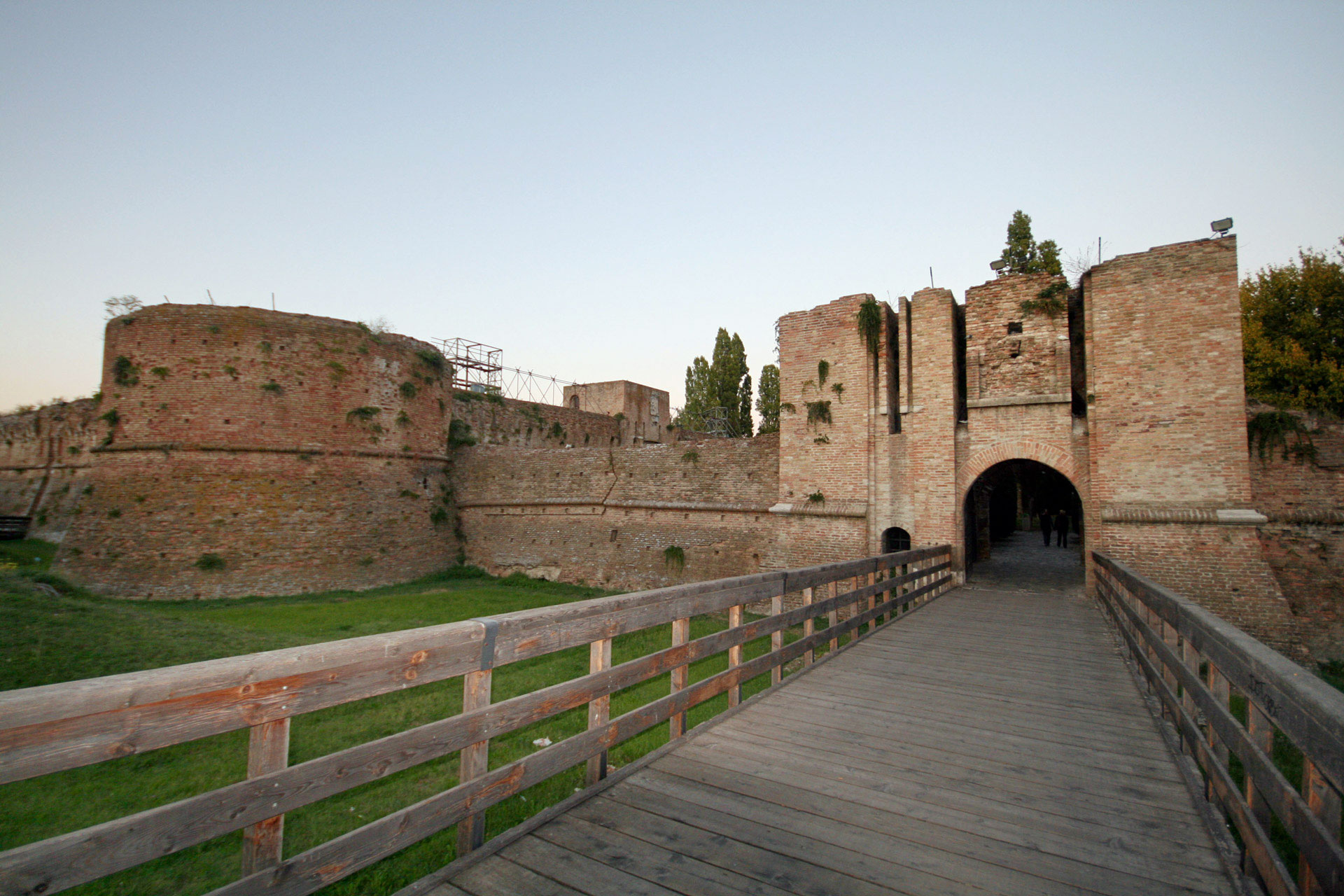© Marco Borrelli
Amor tiranno
Love passions in 17th-century Venice
Carlo Vistoli countertenor
Ensemble Sezione Aurea
Filippo Pantieri harpsichord and orchestrator
Gabriele Raspanti e Francesca Camagni violins
Elisa La Marca theorbo and Baroque guitar
Sebastiano Severi cello
Rosita Ippolito violone
music Claudio Monteverdi, Filiberto Laurenzi, Benedetto Ferrari, Francesco Cavalli
The words of Iarbas, King of the Getuli, in unrequited love with Dido (in Gian Francesco Busenello’s libretto for Didone by Francesco Cavalli, 1641) are those that best express the contradictions of love, set to music in 17th century Venetian opera. It is Iarbas who notes that “against Amor tyrant my sceptre is powerless” and who describes love as a “god of violence, cruel creator of tremendous events”. This is proven by the turbid incident of the Coronation of Poppea, evoked by the torments of Ottone who sings his love under Poppea’s balcony, despite knowing that “in the lap of Poppea Nero sleeps”. The very same Ottone whom Octavia, the emperor’s wife, orders to kill Poppea, and who, should he fail to do so, will be accused of having attempted to rape Octavia. But love is not only a tyrant for mortals, it is also a tyrant for the gods, as we are reminded by Apollo, who sees Daphne turn herself into a laurel bush to escape him. These are just some of the unhappy lovers given voice by the talented countertenor Carlo Vistoli, and it is precisely the power of song that moves us, almost identifying us with those unfortunate slaves to love.
